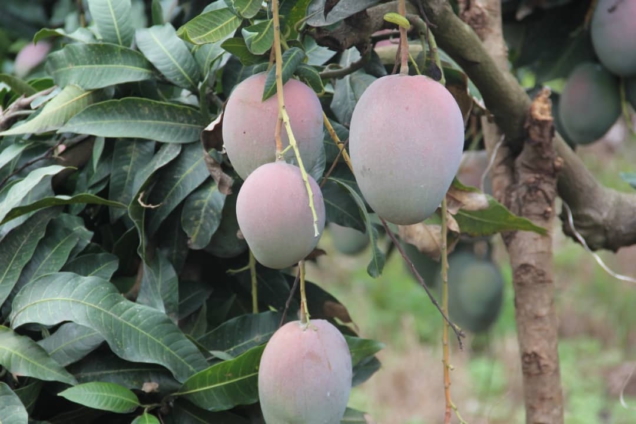It was exactly 10:29 hours when we arrived at Mr. Matthew Kenneth Adom's mango plantation on June 16, 2022, having spent almost 2 hours on the road due to its deplorable nature.
Mr. Adom who was deep inside the farm didn't notice our presence as we spotted two spraying gangs clearing the farm's boundaries of weeds and keeping the area tidy.
Mr. Yaw Asenso-Mensah, Plant Pests and Diseases Control Company Limited (PPEDCO) manager, had to go in search of Mr. Adom who was scheduled to lead us to navigate the farm. It took our host a couple of minutes to show up, wearing an infectious smile as he admired the fruits.
It was a resolute smile that stood out and had great significance for people like Mr. Adom who previously experienced disappointment and sorrow.
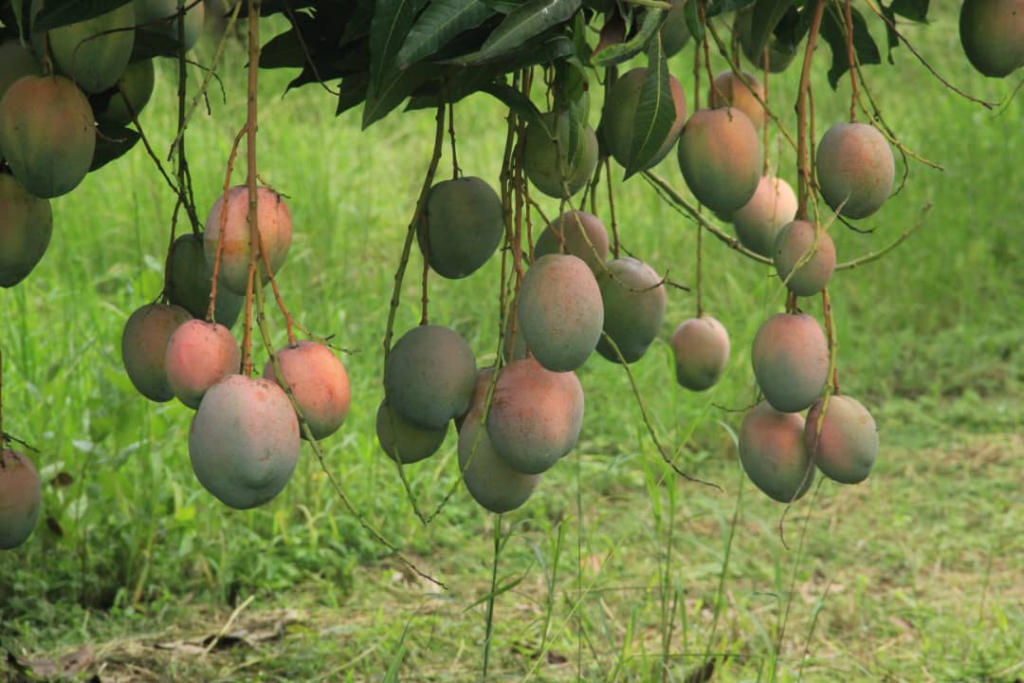
His excitement could be compared to that of a couple who had just welcomed their first child after twenty years of marriage.
After meeting our team, Mr. Adom felt even more motivated to share his success story in the hope that, it will motivate other farmers who have suffered the devastation of the Bacterial Black Spot disease.
Perhaps for the first time ever on his farm, Mr. Adom gave strangers a big smile.
When the mass spraying exercise was launched in September 2018, Mr. Adom had established a "graveyard" where he buried his damaged mangoes.
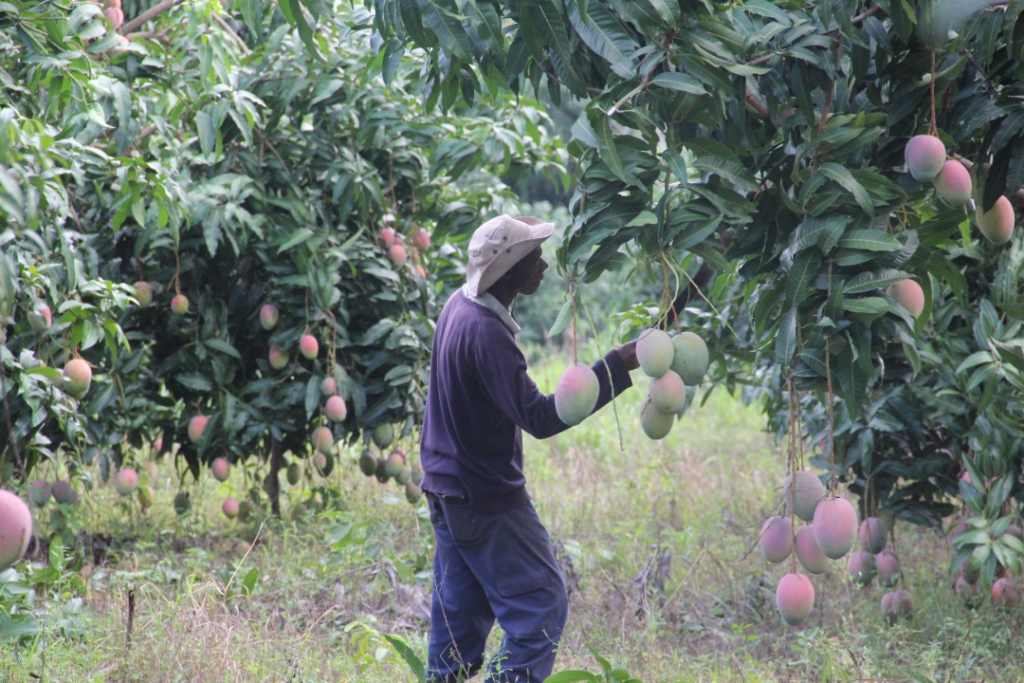
At the time, Mr. Denis Amenga Abugri, the then director of agriculture at the Kintampo North Municipality, visited the farm.
This comes after the Ministry of Food and Agriculture and PPEDCO worked together to eradicate the BBS.
The Kintampo Mango Farmers Association's membership, which consisted of about 325 mango growers, cultivated 4,199 acres in all.
However, the presence of the pest, which decreased yield, put their commercial prospects in jeopardy.
The infestations of the mango bacterial black spot disease reached more critical point in 2016.
Due to the enormous damage caused by the BBS, Mr. Adom established a mango graveyard that same year.
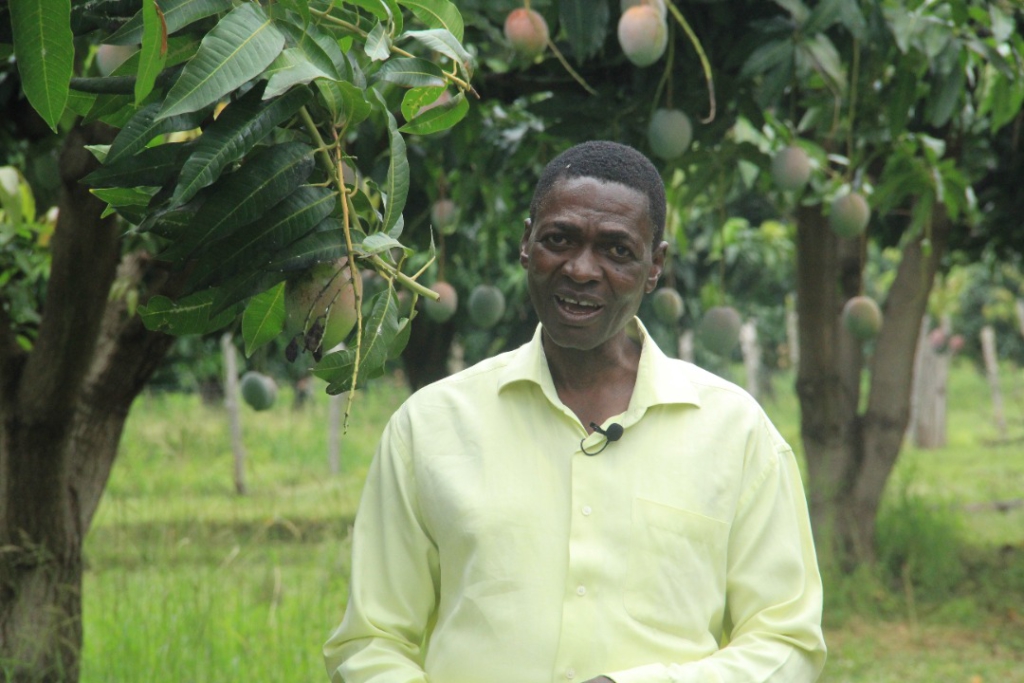
"I plugged the mangoes and buried them as if I were burying a human being when I had the BBS attack," he said.
Before BBS, Mr. Adom was earning 5 tons per acre. The 69-year-old then spent about 1,300 cedis for farm maintenance.
After BBS infestation, the farm's productivity fell to 1.4 tons per acre. And even then, it was exclusively for the fortunate. The unlucky farmers would spend a lot of money fighting the disease, but at the end of the season, they would have nothing to show for their efforts.
A year later, a plant protection company that closely monitors the disease came.
Mr. Adom asked them for help.
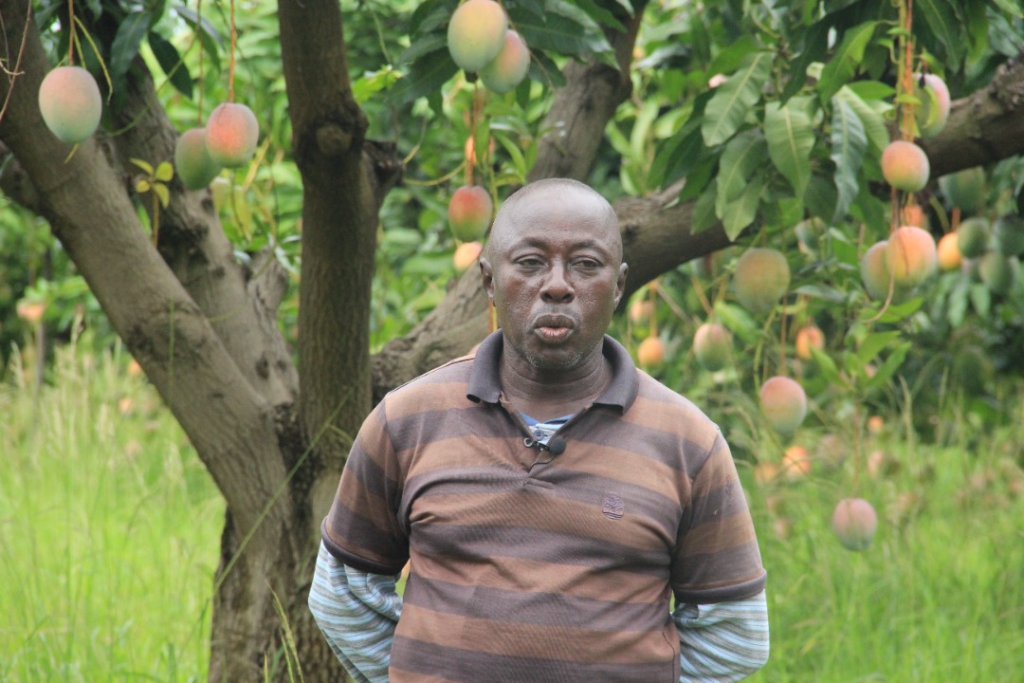
"I had a lot when PPEDCO came in and helped with spraying, pruning, farm management, and sanitation."
Mr. Adom has been spending 4,100 cedis to control the BBS, an increase of 2800 cedis or more than 200 percent since 2017, when PPEDCO intervened.
But Adom yield also climbed, rising by 4 tons to an average of 9 tons per acre.
For instance, in 2021 an acre at one of his two plantations produced 11 tonnes of production.
"I had an excellent harvest the previous year. I harvested an acre at 11 tonnes," Mr. Adom said.
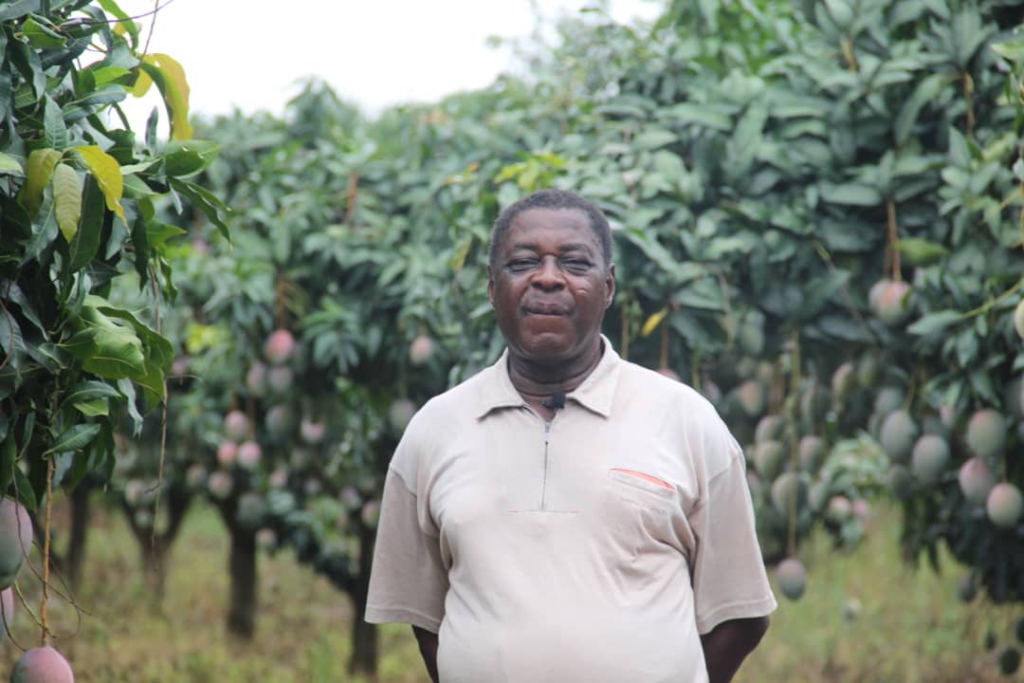
When the reports came from HPW Fresh & Dry Ltd, zero % detection of BBS was found in Mr. Adom produce, which means BBS has left his farm.
HPW processes over 20,000 tons of fresh fruit, exports 2,000 tons of dried fruit, and employs 1,000 people. It is the largest producer of naturally dried mango, pineapple, and whole coconuts in West Africa.
He gushed, "This year, I am expecting tremendous amount of money because the fruits are good."
PPEDCO's trade secret is the use of a copper-based fungicide, which is permitted by European Union Organic Agricultural Regulations.
Actigard commonly called Bion with active ingredient Acbenzolar-s-methyl-50 is also sprayed to boost the immunity of the trees against BBS. This chemical is sprayed in combination with Coprous Super(active ingredient copper oxychloride) and Kuprous Kingkong (active ingredient Cuprous Oxide).
"There have minimal effect on humans and again, the Actigard is not a chemical but immunity booster."
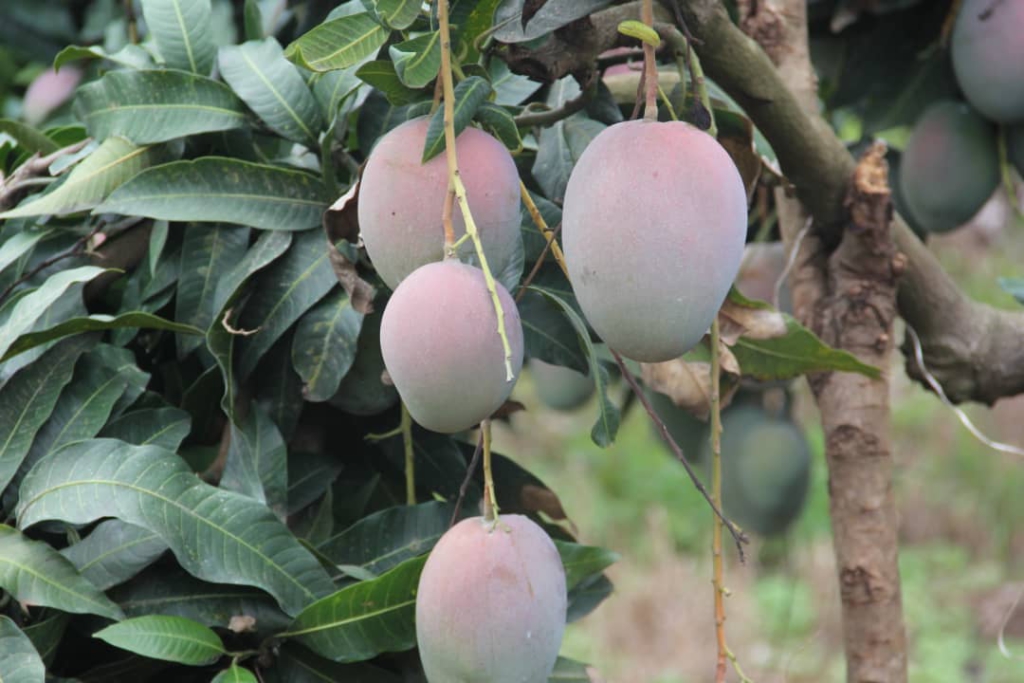
Mr. Asenso-Mensah says it has no effect on human even if one eats the fruit where it has been applied.
Farmers with the financial means to buy all suggested chemicals have been successful in keeping the disease under control.
Two farms have managed to eradicate BBS totally, as determined by tests, so far.
Mr. Asenso-Mensah indicated that, BBS can be controlled.
"We have succeeded in controlling them completely on two farms."
According to records, 2020 saw 100% free BBS from Emmanuel Sarpong's farm. On a farm of 10 acres, he produced 70 tonnes of mangoes, which was previously inconceivable.
But things have changed this year, and Mr. Sarpong might not be able to accomplish the same feat because he could not afford the essential chemicals.
"This year I had problem with funds. When we pruned I couldn't get enough money to buy the bion so I started using it late."
The PPEDCO managing director urged Mr. Sarpong to find funding and purchase the chemicals.
Mr. Asenso-Mensah acknowledged that the farmer is anticipating a bountiful harvest, but not as much as in past years.
But because of the BBs disease invasion in 2017, mango producers were forced to destroy their plantations.
A mango farm that had a potential average output of 7 tonnes was producing barely 1.4 tonnes, if not nothing at all.
With PPEDCO's assistance, farmers' sense of community and faith in the mango industry are being revived.
Apart from his 25 acres in Ejura, Kwame Owusu also owns a two-acre mango farm in the Kintampo south. He is pleased with the quick outcomes.
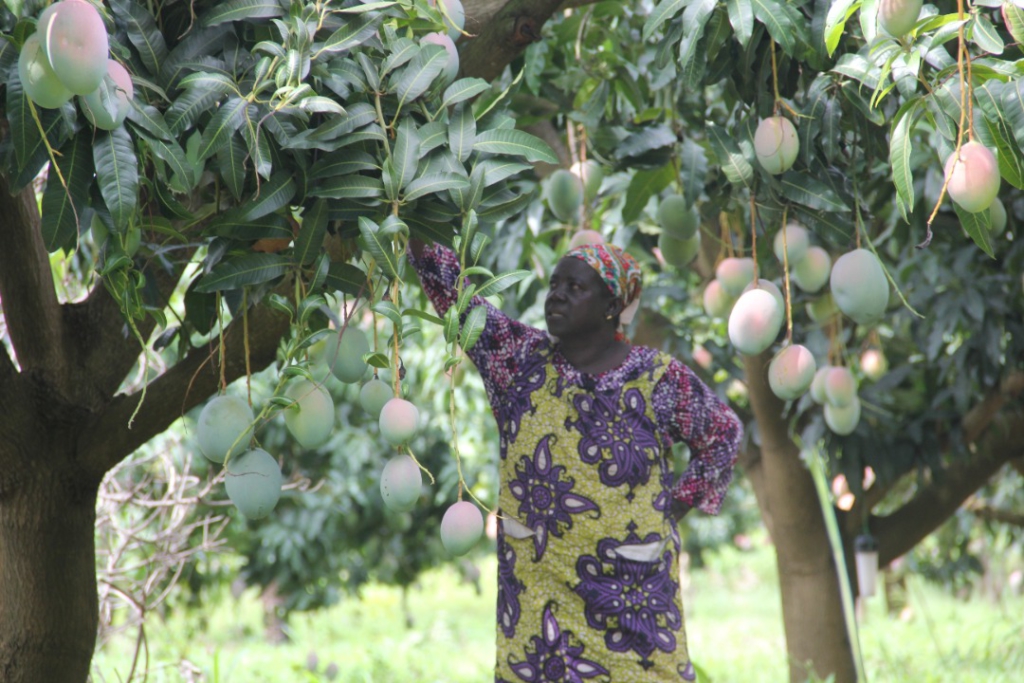
"All the diseases have gone. The most dangerous one is the BBS, it has been exterminated. None on it, at all."
Per the evidence on his fruits, Mr. Owusu says, "look at this farm. Look at the mangoes, I believe I am going to have a very good harvest."
Agnes Gyamea and Mary Tweneboah are expecting to harvest at least 6 tons per acre.
The prevailing market price is 2,200.00 Ghana cedis per ton, therefore both of them are expecting an income of 18,200.00 each from their 2-acre farms respectively.
Bacterial black spot also known as bacterial canker is caused by Xanthomona axonopodis pv mangiferaeindica.
Experts say, the disease was first discovered in Tamale in 2010. Since then, it has moved further south. It was later found in the former Brong Ahafo region, where it was believed that nearly 70% of the entire acreage used for mango cultivation was affected.
It reached Dodowa and Somanya in the Eastern area in 2015.
BBS is likely mostly originated in India and spread to other countries through the movement of plant materials.
According to scientific reports several countries in the Eastern Hemisphere including major mango production areas such as Australia, Burkina Faso, India, Japan, Pakistan, the Philippines, South Africa, Taiwan, Thailand, and the Middle East have all reported BBS.
It is named after the black spot marks, which develop first on leaves and then spread on fruits.
The causal agent infects stems, leaves, and fruit tissue through natural openings, wounds causing between 50% and 80% reduction in fruit production.
According to Mr. Asenso-Mensah, controlling BBS on a single farm is not enough. He says the disease will spread through the plantations as long as it stays in one place.
Even if one farmer eradicates BBS, there is a strong likelihood that it may return from the other farms that neglected to treat the disease.
Farmers must band together and decide on a coordinated control strategy if BBS is to be aggressively eliminated.
Mr. Asenso says that more farmers must profit from the initiative as a result.
"We believe that, if farmers can procure all the chemicals as recommended, the farmers will be able to get big yields on their farms and thereby increasing their incomes."
According to him, doing so will make it more affordable for the farmers to recoup their investments.
Latest Stories
-
Inter edge out Bayern to reach Champions League semis
2 hours -
Superb Arsenal defeat Real Madrid to reach semi-finals
2 hours -
GPL 2024/25: Young Apostles’ late goals seal win over Berekum Chelsea
2 hours -
FIFA Club World Cup arrives in Casablanca for final African stop
2 hours -
Level 100 student allegedly commits suicide after partner cheats on him
4 hours -
Tariffs will hit US economy and raise prices, says Fed boss
4 hours -
Muster courage and go by dictates of report – Dr Asah-Asante to NPP
6 hours -
Minority urges Mahama to act on Bawku security situation
6 hours -
Olive Tower Prayer Ministries, Unilever Ghana hold free health screening for 700 Pokuase M.A. Basic School students
6 hours -
Obama calls Trump’s freeze of Harvard funding ‘unlawful’
7 hours -
Albert Kobina Mensah: Observed or discovered?
7 hours -
US tariffs will make global trade shrink, says WTO
7 hours -
UK bans EU cheese and meat imports to prevent disease spreading
7 hours -
NPP to begin nationwide Thank You Tour after 2024 election defeat
7 hours -
GPL 24/25: Aduana Stars defeat spiritless Hearts of Oak
7 hours

